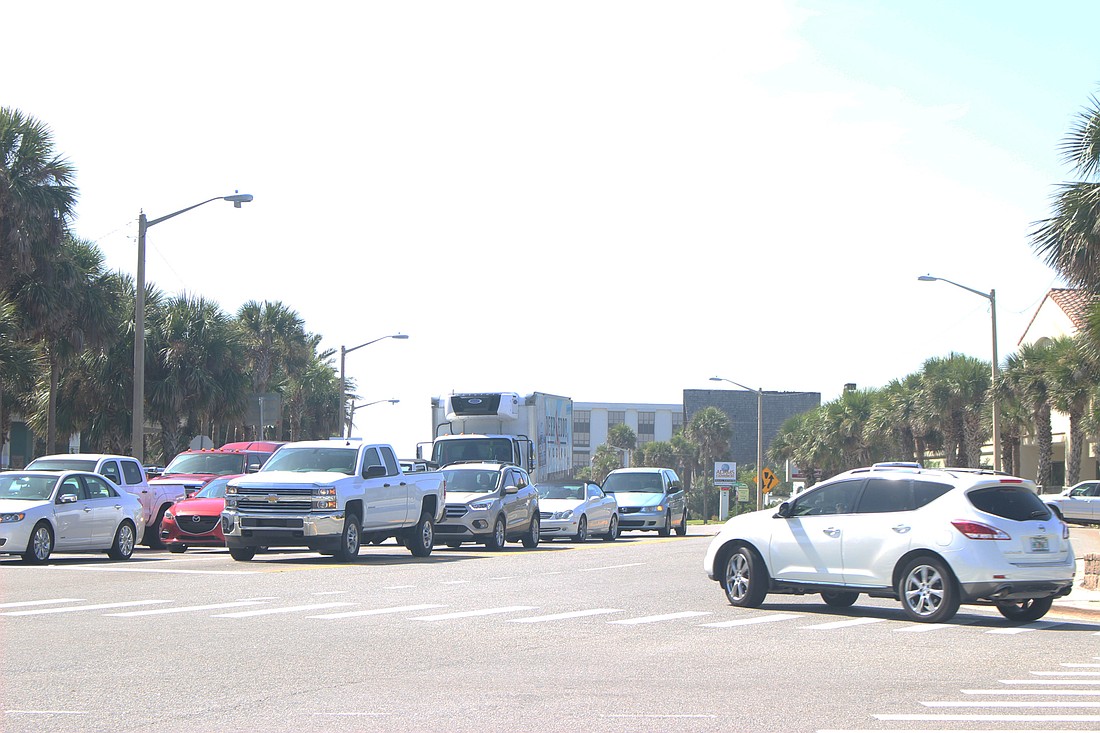- April 25, 2024
-
-
Loading

Loading

The Beachside Redevelopment Committee dug in deep into the homestead exemption and its effect on code enforcement in the beachside during their meeting on Monday, Sept. 18.
“Homestead and the exemption that goes with it is constitutional, which trumps local requirements and local desires to get liens paid," Volusia County Property Appraiser Larry Bartlett said.
The committee discussed how to solve the problem of homestead exemption fraud on the beachside, analyzing the financial impact of unpaid liens and coming up with ways to identify possible fraud cases in Volusia County. Bartlett announced at the meeting that he has submitted a proposal to the Constitutional Revision Commission that the term "and reside thereon" be added to the Homestead Exemption requirement, which was deleted by the commission in 1968.
The added term would ensure that people live in the home they claim the exemption on, a factor that doesn't currently contribute to a person filing for home exemption. This goes against the proposal to increase the home exemption, which could make it on ballot in the near future.
“When you increase the homestead exemption, you’re not cutting down on the amount of tax revenue that you need," Bartlett said. "Of course, the payment of that revenue has just shifted to others who don’t have a homestead exemption.”
He estimated the financial impact to be between $8-10 million in property values.
One of the hurdles in identifying violations of the homestead exemption is that the Volusia County Property Appraiser's Homestead Compliance division is staffed by only two people.
“From a resource management standpoint, you’ve got two people that are working 165 cases a year," said committee member Rodney Cruise, who is the senior vice president for administration and planning at Embry-Riddle. "Think about resourcing in a very proactive strategy for that department to look for problems in active ways, solicit the cities for problem properties. They could easily be overwhelmed in very short order with the amount of information that impacts them.”
The Homestead Compliance Division regularly receives calls and emails from residents in Ormond Beach and Holly Hill to look at possible fraud cases, and would love for Daytona Beach code enforcement to point them in the right direction in their city.
The liens collected from code enforcement do not go back to the cities, but to the county's general fund, which may or may not help out with beachside redevelopment.
Clay Ervin, director of the beachside redevelopment committee, summarized how code enforcement process as established in Florida Statute 162. He said there is administrative due process that must happen when a homeowner is tacked with a code enforcement fine. The homeowner must be given a certain period of time, which is decided by local government, to fix the issue before they are fined.
If this doesn't happen, then they must go up in front of a board to determine how much money they must pay to the city.
“This all works very well with conscientious property owners who are concerned about making sure that they don’t have a fine," Ervins said. "The problem that you have is those that do not care about being conscientious property owners.”
For example, he said there's a $40,000 property in Volusia that has a lien on $1 million. Unless the property is deemed an unsafe structure, in which case the building could be demolished, the county cannot do anything but keep tacking on liens.
One of the ways this affects the beachside has to do with what some committee members labeled "slum houses," or homes violating zoning and code enforcement by housing more than four unrelated persons. However, Jim Morris, deputy city manager of Daytona Beach, said this does not apply if one of the unrelated persons in the household has claimed a homestead exemption.
“That person with a code enforcement lien, who also has homestead exemption, can during the time they own the home and claim exemption, effectively ignore the lien because it cannot be foreclosed upon," Morris said.
Those who are most impacted by homestead exemption are usually the ones that don't have it, Bartlett said. This includes commercial property owners or people who own vacation homes in the area.
“Civilization is paid for with taxes, and as long as everybody pays their fair share, then that’s okay with me," Bartlett said.